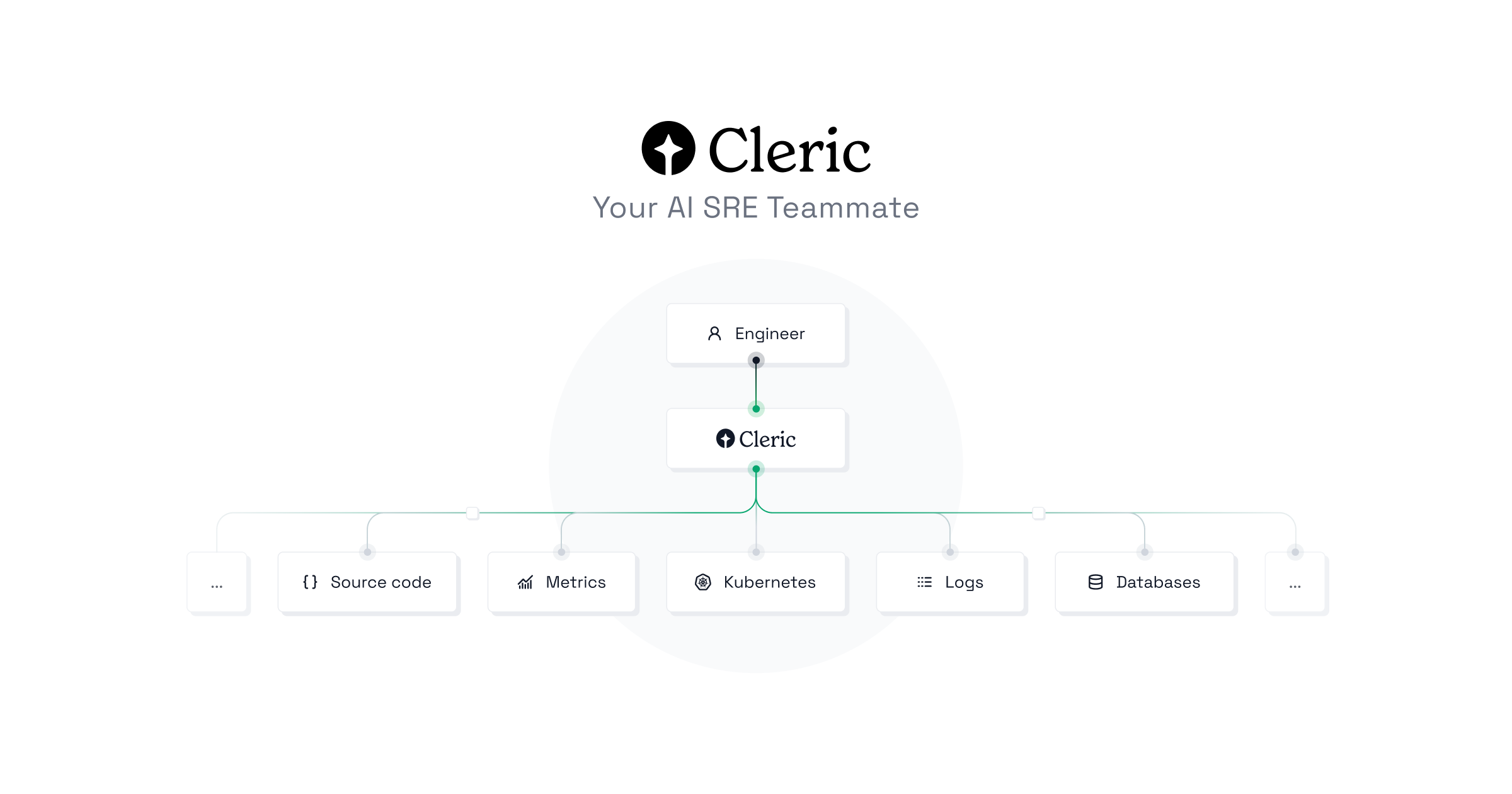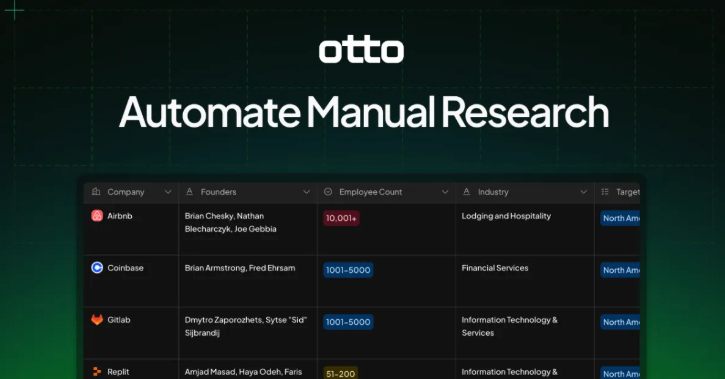
Qodo, formerly Codium, is an agentic AI coding platform designed to enhance code integrity throughout the development lifecycle. It focuses on reviewing, testing, and writing code with AI assistance.
Key features:
- Qodo Merge: Automates code review processes, generates PR descriptions, surfaces bugs, and suggests code improvements directly within pull requests.
- Qodo Gen: An IDE plugin that generates quality code and meaningful tests, improving code coverage and detecting vulnerabilities.
- Qodo Cover: A code coverage agent that generates context-aware regression tests and provides code analysis and coverage reports.
Use Cases:
- Improving code quality and reducing bugs.
- Automating code review and testing processes.
- Boosting developer productivity with AI-powered coding assistance.
- Ensuring code adheres to company best practices.

Minded is a platform designed to build and deploy AI agents for automating digital operations. It targets developers and enterprises looking to streamline workflows and improve efficiency.
Key Features:
- AI Agent Builder: Build AI agents to automate tasks.
- High Accuracy: Claims 99.8% accuracy in production environments.
- Developer-Focused SDK: Provides developers with full visibility and control over AI agent behavior, enabling customization and guardrail implementation.
- Workflow Automation: Aims to fully resolve over 70% of workloads.
- PII Masking: Built-in PII masking for enterprise-grade security, allowing sensitive data to remain within the user's environment.
- Pre-built Integrations: Integrates with existing systems via API.
Use Cases:
- Customer Support Automation: Automate customer support tasks, resolve tickets, and reduce wait times.
- Digital Operations Automation: Automate various digital operations within weeks, minimizing R&D efforts.
- Cost Reduction: Claims to reduce cost per ticket significantly.
Target Users:
- Developers
- Enterprises
- Customer support teams
- Operations teams

Payman is a secure financial platform designed for AI agents to move money without direct access to customer funds. It offers a secure connection between AI and bank accounts, mitigating risks of unauthorized access, errors, or fraud.
Key features include:
- Secure AI Transactions: Enables AI agents to perform financial transactions securely.
- SOC 2 and PCI Compliance: Adheres to industry standards for security and compliance.
- Spending Limits: Allows configuration of detailed spending limits for AI agents.
- Payee Protection: Defines pre-approved payees to prevent unauthorized transactions.
- Payment Tracking: Provides reference IDs and real-time status for transaction tracking.
- USDC Wallet Support: Supports transactions with digital assets.
- Seamless Integration: Works with Vercel AI SDK, OpenAI SDK, Anthropic, and LangChain.
Use cases include fintech, AI-driven trading, personal finance assistants, and treasury management.

AirOps is a platform designed to help marketing and SEO teams orchestrate content and drive revenue. It combines large language models (LLMs), brand knowledge, and live data to create content-powered growth strategies.
Key features:
- AI Models + Integrations: Access top AI models, connectors, and data sources.
- Workflows: Combine LLMs, data, and human expertise to automate content creation processes.
- Grids: Centralize and scale content operations with a command center for managing content workflows.
- Knowledge Bases: Make AI sound like a member of your team by integrating brand guidelines and market expertise.
Use Cases:
- SEO & Content Teams: Create original, ranking content at scale.
- Marketing Agencies: Increase content production and grow your agency.
- E-commerce: Convert product data into revenue-driving product detail pages (PDPs) and collection pages.

Beam AI is a platform designed for agentic process automation, targeting Fortune 500 companies and scale-ups. It allows users to build and deploy AI agents to automate workflows, reduce operational costs, and enhance productivity.
Key features include:
- AI Agent Builder: Tools to construct and customize AI agents.
- Agentic Workflows: Facilitates the creation of multi-agent systems for complex tasks.
- Integration Capabilities: Seamlessly connects with existing systems via API.
- Self-Learning Agents: AI agents that optimize performance through continuous learning.
Use cases:
- Customer Service Automation: Automate responses to customer inquiries and support requests.
- Data Extraction: Automate data extraction from invoices, documents, and other sources.
- Financial Compliance: Automate financial reporting and compliance tasks.
- HR and Recruitment: Automate employee onboarding and interview scheduling.
- Sales Operations: Automate sales proposal generation and lead qualification.

Cleric is an AI-powered Site Reliability Engineer (SRE) teammate designed to help engineering teams quickly diagnose production issues in complex cloud-native environments. It autonomously root causes alerts from production applications without requiring manual runbooks.
Key Features:
- Autonomous Root Cause Analysis: Cleric automatically triages and identifies the root cause of alerts, reducing the time spent on investigations.
- Integration with Existing Tools: It integrates with popular tools like GitHub, Google Cloud, AWS, Kubernetes, PagerDuty, Slack, Datadog, OpenSearch, Grafana, Confluence, Prometheus, and Jaeger.
- Adaptive Learning: Cleric is trained on a vast array of production issues and best practices and is designed to adapt and learn from each unique enterprise environment.
- Closed-Loop Infrastructure: Aims to create a system where machines operate machines, reducing the reliance on human operators for large-scale production environments.
Use Cases:
- On-Call Support: Frees on-call engineers from time-consuming investigations by providing automated triage and root cause analysis.
- Proactive Issue Detection: Helps identify potential issues before they escalate into major incidents.
- Improved System Reliability: By quickly resolving production issues, Cleric helps improve the overall reliability and stability of applications.

Inngest is a queuing and orchestration platform designed for modern software teams. It offers durable functions that replace traditional queues, state management, and scheduling, allowing developers to build reliable, multi-step code more efficiently.
Key features include:
- Durable Execution: SDK primitives enable automatic retries on errors, parallel execution, and long-duration sleeps.
- Flow Control: Tools for throttling, concurrency control, prioritization, and rate limiting.
- Local Development: An open-source Dev Server for local testing and debugging.
- Observability: Tracing and metrics for monitoring and debugging function executions.
- Flexibility: Supports multiple languages (TypeScript, Python, Go) and deployment platforms (serverless, servers, edge).
Use cases include AI workflows, background jobs, and scheduled tasks.

KushoAI is an AI-powered testing tool designed to automate the creation and execution of software tests. It targets developers and QA engineers aiming to accelerate deployment velocity and improve test coverage.
Key features include:
- AI-Driven Test Generation: Transforms user inputs into comprehensive, executable test suites.
- Web and API Testing: Supports testing of both web interfaces and backend APIs.
- Automated Test Scenario Creation: Generates test scenarios and code, reducing manual effort.
- CI/CD Integration: Seamlessly integrates with CI platforms for autonomous testing.
- Real-time Updates: Automatically updates tests in sync with codebase changes.
KushoAI aims to provide stress-free releases with high test coverage, enabling faster deployment cycles and bug detection before user impact.

Otto is an AI-powered tool designed to automate manual research processes. It leverages AI agents to streamline tasks such as enriching lists, conducting company research, and processing large volumes of documents.
Key Features:
- AI Agents: Use AI agents to automate web browsing and data extraction.
- Table Interface: Native table interface for organizing and managing research data.
- List Enrichment: Enrich existing lists with new data points by scanning company websites for pricing, reviews, and contact details.
- Web Scraping: Extract data from websites using plain English prompts, eliminating the need for complex scripts.
- Document Processing: Process and analyze hundreds of documents in minutes by setting columns as questions and letting Otto extract answers.
Use Cases:
- Company Research: Quickly gather key insights about companies using web browsing agents.
- Real Estate: Automate research in the real estate sector.
- Finance: Streamline financial research tasks.
- Recruiting: Enhance recruiting processes with automated data gathering.
Otto targets professionals who need to automate research tasks, such as data analysts, researchers, sales teams, and recruiters.

Sema4.ai is an enterprise AI agent platform designed to empower businesses in building, operating, and scaling AI agents. It addresses critical problems that plague modern businesses, enabling significant increases in productivity, efficiency, cost reduction, and customer service levels.
Key Features:
- AI Agents: Build, operate, and scale AI agents.
- Sema4.ai Studio: Build intelligent agents that integrate with enterprise applications, ERPs, CRMs, data platforms, and more in minutes.
- Sema4.ai Control Room: Run and manage agents on your cloud infrastructure using your own LLMs and data.
- Sema4.ai Work Room: Make it simple for your business users to find, use, and work with agents in a single, focused experience built from the ground up just for them.
- Dynamic Data Access: Access all your data without creating new data silos, providing agents with access to critical enterprise-context.
Use Cases:
- Invoice reconciliation
- Regulatory compliance
- Receivables matching









